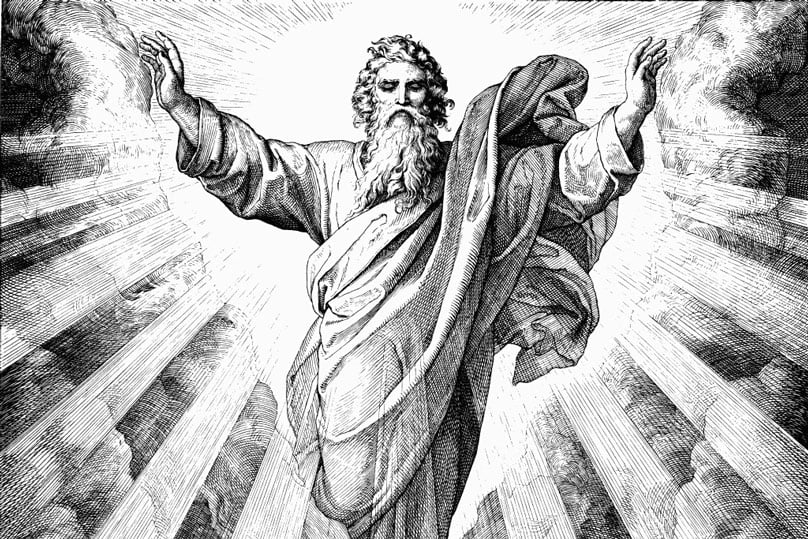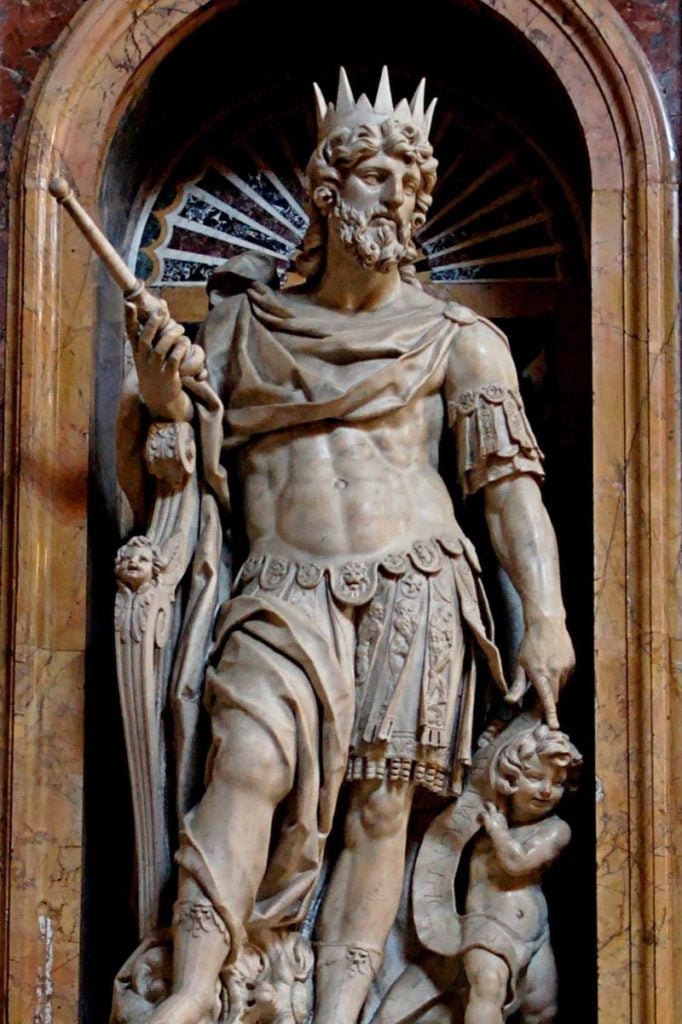
Read part two here.
For the first Christians, Jews one and all, the encounter with God took place through their entire culture. They were a people steeped in the thought and imagery of the Law and the Prophets: what Christians call the “Old Testament”. God, before he was revealed as God the Father by Jesus, was known to them from their mother’s breast as the God of our fathers.
They knew him in the feasts and fasts of the Jewish calendar, in the psalms they sang each day, in the whole host of customs, ceremonies, and rites that made up day-to-day life, and above all through the sacred stories of their encounter with him told by the Law and the Prophets.
He had made a covenant–a bond of sacred kinship with them–when he, purely out of his love and not because they deserved it, had made them his Chosen People and rescued them from the land of Egypt. He had spoken on Sinai and through the prophets, promising blessing for obedience to the covenant and curses for disobedience.
And he had promised that one day he would send his Messiah or Anointed One: an heir of their great King David who would somehow set things right. He would, as one great peasant poet of their people exulted, show the strength with his arm, scatter the proud in the imagination of their hearts, put down the mighty from their thrones, exalt those of low degree, fill the hungry with good things, send the rich empty away, help his servant Israel in remembrance of his mercy–and do it all in fulfillment of the promises he spoke to “our fathers, to Abraham and to his posterity for ever” (Luke 1:51-55).
In the Old Testament, there appears to have been a movement from perception of the God of Israel as the greatest among a gaggle of other gods to the realisation that there simply are no other gods. So in the story of the Exodus, the warning is that “on all the gods of Egypt I will execute judgments” (Ex 12:12). Likewise, the Psalms call the God of Israel the “great King above all gods” (Psalm 95:3). But eventually Israel arrives at the clarity of the Shema: “Hear, O Israel: The Lord our God, the Lord is one” (Deuteronomy 6:4) and later Jewish prophets unambiguously declare, “The Lord is God; there is no other” (1 Kings 8:60; Isaiah 45-46).

Other ancient people, hailing from paganism, came slowly to the conviction of one God in other ways, including rejection of their native polytheism in favor of Socrates’ focus on one “God” who guided his conscience as distinct from “the gods”. Indeed, early Christians, following St. John’s teaching that God is the “light that enlightens every man” (John 1:9) believed that, in the words of St. Justin Martyr, “those who lived reasonably are Christians, even though they have been thought atheists; as, among the Greeks, Socrates and Heraclitus, and men like them; and among the barbarians.”
In other words, early Christians believed, with Paul, that God is not merely the God of the Jews, but of the Gentiles also (cf. Romans 3:29) and that he has, accordingly, not left himself without witness so that those beyond the covenant people of Israel “should seek God, in the hope that they might feel after him and find him” (Acts 17:27).
This is why the Church, despite arising in the intensely polytheistic Mediterranean world, denied that polytheism is the primordial state of human religion. As G.K. Chesterton remarks, there is very good ground for guessing that monotheism “did not originally come from some detail that was forgotten because it was too small to be traced. Much more probably it was an idea that was abandoned because it was too large to be managed. There is very good reason to suppose that many people did begin with the simple but overwhelming idea of one God who governs all and afterwards fell away into such things as demon-worship almost as a sort of secret dissipation.”
Sometimes we find cultures, for example among Native Americans, in which a Great Spirit stands behind the plethora of nature spirits, gods, and other beings that crowd the folklore. So, for instance, Jesuits in the 17th Century report the Native American people to whom they spoke about the great God above all gods excitedly murmured “Atahocan! It is Atahocan!” And sometimes (as we see in ancient Athens in Acts 17:23), pagans hedged their bets and honored the Unknown God, just in case there was Somebody behind the riot of gods that they had overlooked.
Of which more next time.
